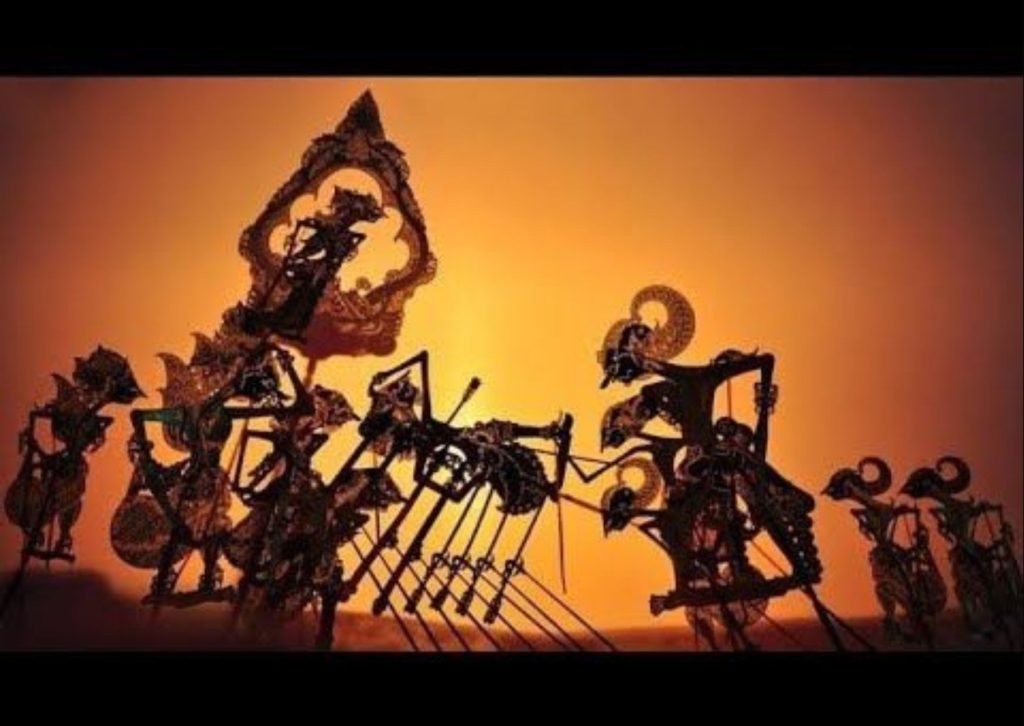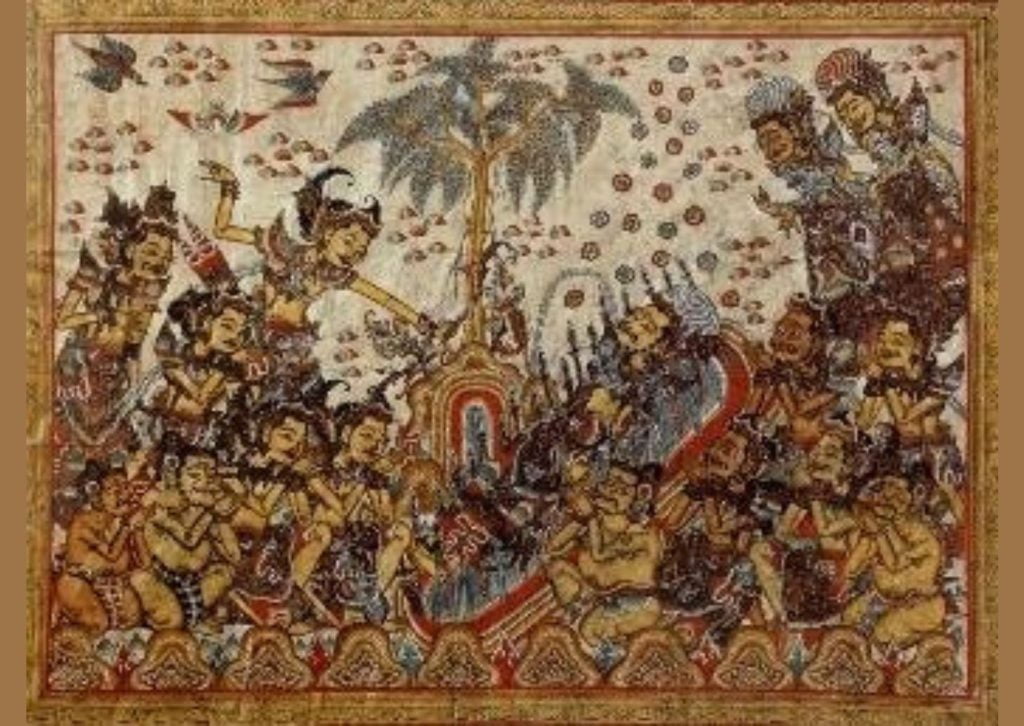Uncategorized
Bisma Dewabrata: The Vow of a Lifetime
The Mahabharata is a famous epic in South and Southeast Asia. This story has been adopted by many countries and has inspired various forms of performances, dances, and paintings. Learning about the Mahabharata story would be incomplete without knowing the character Bisma, the ancestor of the Pandawa and Kurawa. The decisions he made had a profound impact on the future of Hastinapura.
A long time ago before the Pandawa and Kurawa were born, Hastinapura was ruled by King Santanu. One day, he met Dewi Gangga and was enchanted by her beauty which surpassed the ordinary women. King Santanu introduced himself and expressed his desire to marry her, even promising to give up his kingdom, wealth, and his life if she accepted his proposal.
Dewi Gangga agreed to marry him but with several conditions that King Santanu must not ask about her origins or background. He also should not interfere with her actions or get angry at her. If he did, she would leave him.
Without thinking twice, King Santanu agreed as the conditions seemed easy enough to follow. They were soon married.
From this marriage, they had children. However, each time a child was born, Dewi Gangga took the newborn and drowned them in the Ganges River. This pattern continued for several births. King Shantanu was deeply saddened by his wife’s actions but felt helpless due to his oath not to question or interfere with her action. He watched in silent despair as Dewi Ganga continued to drown each of their newborns.
However, upon the birth of their eighth child, King Santanu could no longer bear it. He cried out in anguish, “Stop! How can you kill your own innocent blood?”
After hearing his plea, Dewi Gangga responded, “Your heart is now tied to this child, which means you no longer need me. I will not kill this child. Frankly, I am the Goddess Gangga, worshiped by gods and humans. I had to carry out this cruel task because Resi Wasista cursed eight Wasu (Hindu deities) to be born into the world. I was asked to be their mother. With your permission, I have given birth to them. As thanks for your assistance, you will eventually attain a higher place in the afterlife. I will raise your youngest child and return him to you.”
As per their agreement, Dewi Gangga left King Santanu with their child. For many years, the king lived apart from his wife and son.

One day, while walking along the banks of the Ganges River, King Santanu encountered a young boy surrounded by an aura of divinity. At that moment, Dewi Gangga appeared and introduced the boy as their son, whom she had named Dewabrata. She explained that he had been taught the art of warfare and possessed powers equal to Parasurama. He had studied the Vedas and Vedanta under the guidance of Resi Wasista. With her blessings, Dewi Gangga handed the child to his father.
With joy, King Santanu took his son back to Hastinapura. For many years, the king remained unmarried, raising his son on his own. However, in time, fate brought him to another beautiful woman named Setyawati, a fisherwoman on the Yamuna River. Her beauty captivated the king, leaving him torn between suppressing his desires or following his wish to marry her.
King Santanu eventually proposed marriage to Setyawati, but her father set a difficult condition: Setyawati’s son should be the heir to the throne. It was hard for the king to replace Dewabrata, who had been prepared to inherit the throne. Displacing Dewabrata would be a great humiliation. With sadness, King Santanu gave up on remarrying.

Seeing his father’s sorrow, Dewabrata was equally distressed. He set out to discover the cause of his father’s misery. Eventually, he met Setyawati and recognized her charm. Dewabrata approached Setyawati’s father and asked his approval to let her daughter marry his father.
Setyawati’s father repeated the same condition: Setyawati’s son should be the heir.
“Mark my words carefully. The son born to your daughter will be crowned king. I am willing to give up my right to the throne for the sake of my father’s lineage,” said Dewabrata.
“Oh, wise crown prince, you have done something that no heir has ever done before. You may take my daughter to marry your father. However, what assurance do I have that your descendants will not claim their right to the throne? This is what concerns me.”
Upon hearing this, Dewabrata said a vow, “I swear never to marry and to remain celibate for the rest of my life.”
When Dewabrata made his vow of celibacy, the gods showered flowers upon him and hailed him, “Bisma… Bisma… Bisma.” From that day on, he was known as Bisma.
Bisma brought Setyawati to Hastinapura, where she married his father. From this marriage, they had two sons: Chitrangda and Wicitrawirya. Unfortunately, Chitrangda died in battle against the Gandarwa, and the throne passed to his younger brother, Wicitrawirya. With Bisma’s help, Wicitrawirya won a contest and married two queens, Ambika and Ambalika. From Ambika, Destarata was born, who became the father of Duryudana and the Kurawa. Through Ambalika, Pandu was born, who became the father of the five Pandawa.


